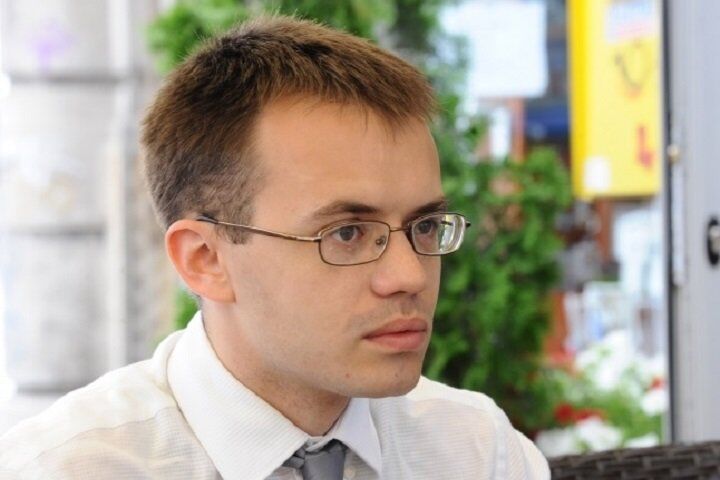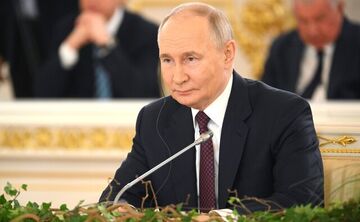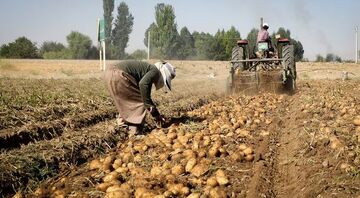Tehran (Bazaar): Syria, like all countries, has the right to diversify its economic partners, and friendly competition between Russia, China, and Iran will benefit the Syrian people by getting them better contracts, Andrew Korybko tells Bazaar in an exclusive interview.
He also says that by balancing the interests of its top three strategic partners, Syria hopes to make them greater stakeholders in its success and serve as proof of the concept that they could trilaterally cooperate in other countries such as Afghanistan for instance to improve the situation there as well.
Korybko is an author, senior, journalist and faculty member at the Institute for Strategic and Futuristic Studies at the Russian Friendship University. A Moscow-based American political analyst specializing in the relationship between the US strategy in Afro-Eurasia, China's Belt & Road Initiative, and Hybrid Warfare.
Following is the text of the interview:
Bazaar: Iran and Russia, as the main allies of the Syrian government during the civil war, have a significant role to play in the lucrative Syrian reconstruction process. At the same time, experts believe that if the two countries do not work well, Chinese companies will definitely make the most of the opportunity. What do you think about this issue?
Korybko: Framing everything in the zero-sum perspective is the wrong way to assess the situation. Syria, like all countries, has the right to diversify its economic partners, and friendly competition between Russia, China, and Iran will benefit the Syrian people by getting them better contracts.
In addition, each of its partners specializes in something different. Russia is known for its high-quality energy infrastructure, Iranian companies are already involved in important commercial activities in Syria, while Chinese ones are global leaders in information-telecommunications technologies and transport infrastructure.
Their envisioned roles in reconstructing Syria could therefore be complementary, not competitive, but it'll ultimately depend on how well they play their cards and how receptive Syria is to each of their proposals.
Bazaar: The Syrian president has proposed some projects to China aimed at rebuilding Syria since last year. He hopes the investment of Chinese companies will be able to rebuild economic prosperity and strengthen domestic infrastructure in the country in a short time. What is your opinion in this regard? Which country will play a major role in the reconstruction of Syria?
Korybko: China undoubtedly stands to be the most promising of Syria's reconstruction partners because of its enormous market potential and impressive financing capabilities.
All countries in the world, especially developing and war-ravaged ones, understand the importance of cultivating closer economic ties with the People's Republic for that reason, and Syria is no different.
That said, Syria also wisely wants to avoid dependence on any single partner, hence why it'll retain strategic economic relations with Russia and Iran and even likely expand them in some fields.
By balancing the interests of its top three strategic partners, Syria hopes to make them greater stakeholders in its success and serve as proof of the concept that they could trilaterally cooperate in other countries such as Afghanistan for instance to improve the situation there as well.
Bazaar: You have said in an interpretation that Iran`s joining a larger Chinese-led transregional integration initiative would benefit all the stakeholders. Is it beneficial for Syria?
Korybko: Yes, of course it is. The W-CPEC+ proposal for expanding the Belt & Road Initiative's (BRI) flagship project of the China-Pakistan Economic Corridor (CPEC) westward through Iran, Iraq, and Syria (W-CPEC+) could open up many market opportunities for those countries, including Russian companies in Syria.
It would also tie them closer together through what China has described as its envisioned community of shared future for mankind, which is a relationship of complex interdependence that serves the collective interests of everyone.
The pioneering of a new economic corridor between West, South, and East Asia through W-CPEC+ will lead to more jobs and investment, and it'll also help Syria and Iran resist the US' intense efforts to “isolate” them.
In fact, they'd arguably become too important for anyone to ignore if this plan succeeds.
Interview by Tahmineh Ghamkhar
















نظر شما